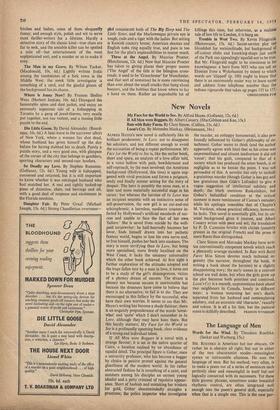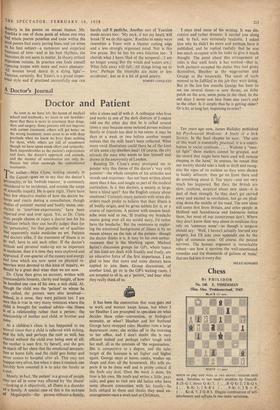The Language of Men
Words for the Wind. By Theodore Roethke. (Seeker and Warburg, 15s.)
MR. ROETHKE is American but not obscure. Or rather he is obscure all right, but not in either of the two obscurantist modes—meaningless syntax or untraceable allusions. He uses the language of men. But his method, very often, is to make a poem out of a series of sentences each perfectly clear and meaningful in itself but not logically connected with its successors. Yet these little gnomic phrases, sometimes under beautiful rhythmic control, are often integrated well enough into the poem's general drift, especially when that is a simple one. This is the case par- titularly in his poems on sexual themes. Mr. koethke is one of those poets of whom one may And whole poems pointless and even within the good poems find many jarring lines, and yet when on his best subject—a numinous and empirical treatment of love—and in his best rhythms, the blemishes do not seem to matter. in theory critical objections remain. In practice one finds oneself repeating tropes with more and more pleasure : ,All women loved dance in a dying lighe- Yeatsian, certainly. But Yeats's is a grand imper- sonal style and if practised successfully one can
hardly call it pastiche. Another sort of Yeatsian mode occurs too: 'My neck, if not my heart, will break/If we do this again.' Roethke in many ways resembles a Yeats with a blunter cutting edge and a less strongly organised mind. Nor is this low praise. But he has his own felicities too : 'I cherish what I have/Had of the temporal : /1 am no longer young/But the winds and waters are;/ What falls away will fall; / All things bring me to love.' Perhaps the triumphs are more or less accidental : but so is a lot of good poetry.
ROBERT CONQUEST































 Previous page
Previous page